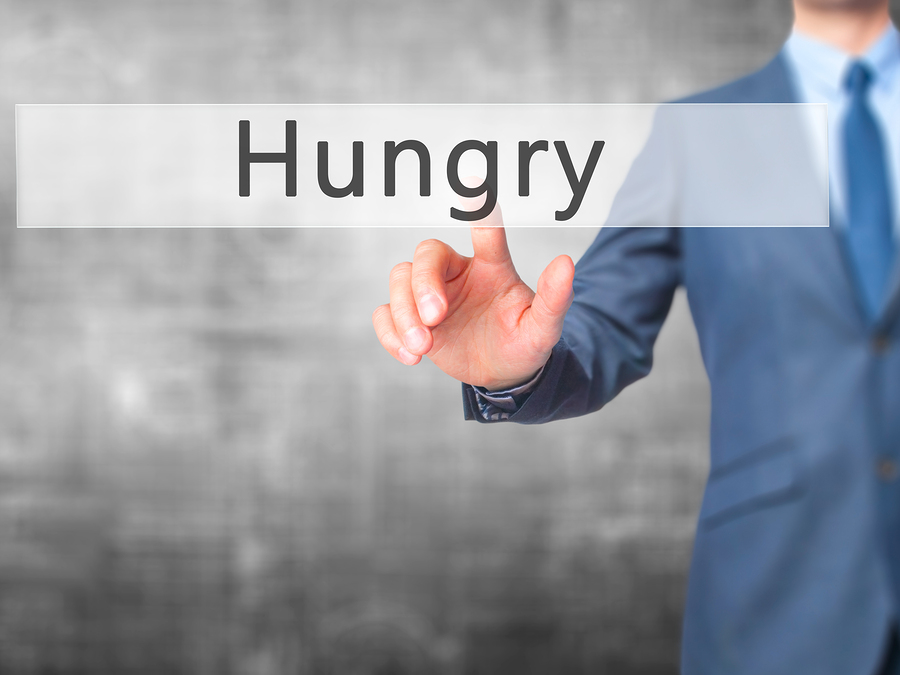- Make It Yourself Lavender Heart-Shaped Bath Bombs!
- 20 Things You Never Knew About “Down There”
- 12 Best Foods For Those Suffering From Arthritis Pain
- 12 Personal Hygiene Mistakes Almost Everyone Makes (Mom Never Told You About #4!)
- 15 Medicinal Plants And Herbs From The Cherokee People
- 12 Mind-Blowing Benefits Of Drinking Coconut Water During Pregnancy
- 12 Outstanding Winter Foods That Won’t Fatten You Up Like A Christmas Turkey
The Real Reason You Get Angry When You’re Hungry

Photo credit: bigstock.com
We tend to be busy these days, heading to work with the smartphone in one hand and coffee in the other. It’s easy to skip breakfast or miss it altogether. In today’s hustle and bustle, we rationalize missing meals as just part of the new normal, but really it is not healthy or productive. We all know what it feels like to have those afternoon hunger pangs. You start getting a little anxious thinking you can wait it out, but the next thing you know, you’re irritable and snapping at your co-workers. That’s right, you’re “hangry.”
The concept of getting angry when you’re hungry is not a new one, and it is actually a very real condition. Getting hangry is the result of being low on blood sugar, and this is directly tied into how much food we eat (or don’t eat as the case may be). When you deprive yourself of food, the body triggers a response that makes you respond with anger. So did you know that there is a real scientific basis for the response itself? Here’s why you go a little crazy when you haven’t eaten.
What Does Being Hangry Look Like?
Putting it simply, being hangry means you’re being a little cranky. You may be impatient with your partner or short with people in general. The reason behind this is the levels of glucose in your brain, controlled by your blood sugar. That glucose level actually helps you when it comes to impulse control, and when you’re cranky, you’re succumbing to your impulses. In fact, recent studies have shown that individuals with lower blood sugar and poor metabolism rates have higher incidences of violent behavior. So there you have it, if you’re hangry, watch out!
Let’s face it, restraining yourself all day can be tiring and it also uses a lot of energy. This energy is fueled largely by glucose, which is supplied by the food we eat (starting to see the correlation here?). So, when you haven’t eaten or when you deprive yourself of food, you’re depriving yourself of the glucose that you need. It is critical that you have something to eat because if you don’t, you can really lose the ability to control yourself and your impulses.
Of course, the science behind being “hangry” isn’t that simple; there’s a lot more that goes into the process. For one, the body will try to balance out the lack of glucose with other hormones. Interestingly enough, these hormones are closely tied to aggressive behavior. Hormones released when you’re hungry include adrenaline, so the edgy feeling you’re getting could be attributed to that.
Continue to Page 2

Photo credit: bigstock.com
The Impact Of Being Hangry
Depriving yourself of food isn’t healthy, regardless of how hangry you get, and the side effects extend beyond being cranky or irritable. There is actual science behind the emotions you experience when you’re food-deprived. For example, some data suggested that couples were more likely to fight and that those fights were defined by aggressive behavior when they were hungry. So, if you and your significant other are having a tough time, look at how much food you’re eating. Are you on a new diet? Have things changed where you don’t have enough time to nourish yourself properly? These may contribute to strife in the relationship.
So, as you can see, getting steady meals is important in more ways than one. People who are hangry have also reported feeling tired and lacking focus to complete basic tasks, so it goes beyond aggressive behavior.
Continue to Page 3

Photo credit: bigstock.com
Ways To Prevent Getting Hangry
If you have a busy schedule, the best way to prevent being hangry or neglecting meals is through a regular routine or by preparing meals in advance. You should always try to have a snack available too. When food is available and convenient to reach, it can really help your hunger pangs. Nutritionists state that its best to eat every four hours to keep your mind and body focused. It is always best to keep on top of your food intake too, so even if you don’t feel hungry, you may want to have a little snack. If you’re watching your weight, it is very possible to keep things healthy even with snacks. Just be sure to explore the options available and read all the labels.
The best types of food to eat are ones that digest slowly like fiber. Protein is also a great option if you’re trying to ward off hunger while trying to lose weight. Try not to worry too much if you miss a meal here and there, you won’t just fall off the wagon and snap. If you do happen to miss a meal, you can always try to supplement with a piece of fruit. Fruit is packed with sugar that digests quickly and gets to where you need it quickly. It’s the perfect choice if you’re feeling hangry but still have a few hours to go before another meal.
So there you have it: There is actual science that supports the concept of getting hangry. Now that you know it is not just you, you can do something to prevent the phenomenon. We all forget to eat every now and then, sometimes our lives are just that busy, but just because we forget doesn’t mean we have to be totally insufferable. Always try to keep snacks with you wherever you go, as they can really help reduce the symptoms of being hangry and keep your blood sugar levels stable.
READ ALSO: Why Are You Always Hungry? Video
It is critical that you eat several meals a day, too, and don’t skip meals, even if you’re trying to lose weight. If you eat healthy and have healthy snacks, you’ll be fine, and those around you will thank you! You don’t have to be a slave to being hangry, just be aware of what you’re eating and when. Keep these helpful facts in mind, and you’ll be well on your way to keeping hunger and irritability at bay.
References:
www.hyperphysics.phy-astr.gsu.edu
































